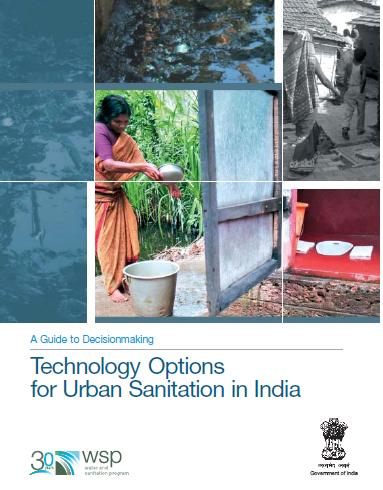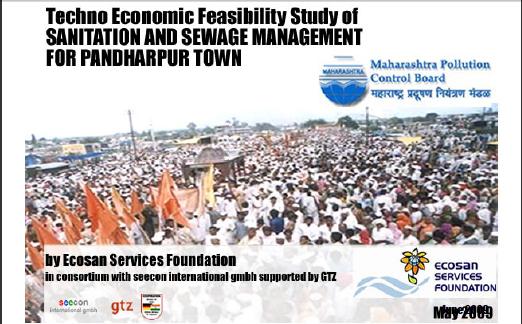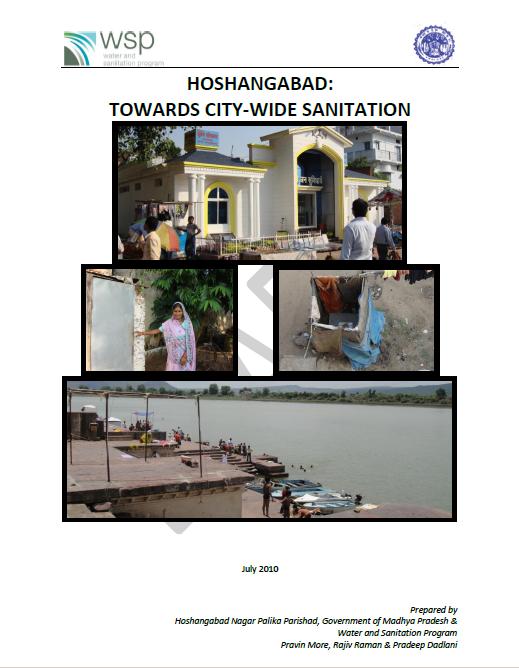/topics/wastewater
Wastewater
The Goa sewerage system and sanitation services management act - Government of Goa
Posted on 20 May, 2011 04:26 PMThis document describes the Goa Sewerage System and Sanitation Services Management Act and includes:
Recycling of water during distillation in laboratories and industries saves gallons of water - Blog post by Dr K K Sharma
Posted on 11 May, 2011 02:21 PMIn the process of distillation vapors passing through the condenser tube are cooled and condensed by water flowing through condenser tube in the condenser unit of the apparatus. In almost all laboratories the water used for cooling the condenser tube is coming from the water supply tap near the wash basin. The precious water after circulating through the condenser tube is left into the drain as wastewater. It has been observed that about 40 liters of water is required for cooling for making 500 ml of distilled water. The water after cooling is generally left to go into the drain.
The following video has been prepared by me and is released by youtube. The video gives good information for those who want to learn about the traditional method of glass distillation and the modified Recycling Distillation Technique (Sharma, 2004) that saves gallons of water.
Application of Composite Correction Program for improvement in efficiency of water treatment plants - A WHO paper
Posted on 20 Apr, 2011 12:41 AMThe goal of safe and affordable drinking water and sanitation has not yet been achieved. The current practices of water purification are inadequate to produce secured water supply. Maintaining health protection at water supply systems has become more challenging with resistance of some pathogens to disinfection using chlorination and an increase in the immuno-compromised population (e.g., people with HIV, organ transplant patients, the elderly).
In this context, it has become essential to develop various tools such as Composite Correction Programme (CCP) and Water Safety Plans (WSP) to improve water purification and distribution systems, to achieve the goal of providing safe drinking water.
Water and wastewater treatment plants - A profile of Dayal Construction Company
Posted on 19 Apr, 2011 05:01 AMThe promoters have a combined industrial experience of more than 50 years in construction, water & wastewater treatment in fertilizer, power, electronics, steel, textile, chemicals, dyestuff & bulk drugs. The company provides total solution for complex water & wastewater problems and has created a niche for itself.
Wastewater reuse in apartment buildings in Bangalore - S Vishwanath
Posted on 14 Apr, 2011 10:12 AMEven if an apartment uses as less as 5000 litres of water a day it must have a wastewater recycling system which does such a thorough job that the treated wastewater is reused to replace fresh water and not for simply disposing off into the environment in a safe way. It is simply not good enough for treated wastewater to be used for watering lawns, an unnecessary demand.
Bio-remediation project announced for Buddha Nala, Ludhiana - MoEF Press release
Posted on 13 Apr, 2011 11:14 AMFollowing the invitation of Member of Parliament (Ludhiana) Mr. Manish Tewari, the Hon’ble Minister for Environment and Forests Mr. Jairam Ramesh along with officials of the Ministry of Environment and Forests including the Chairman of the Central Pollution Control Board, visited the site of the Buddha Nala in Ludhiana, Punjab in September of 2010.
Indian standard code of practice for installation of septic tanks (IS: 2470) - Bureau of Indian Standards (1986)
Posted on 11 Apr, 2011 03:46 AMThis IS Code provides various requirements that have to be met while constructing a septic tank, so that it meets minimum standards. This Code is dictated by the Bureau of Indian Standards, and ensures that the sewage is treated in a way that maintains health and hygiene of the community.
While the first standard for small septic tanks was first printed in 1963 and then revised in 1968, the standard for disposal of effluent from septic tanks was published later in 1964 and revised in 1971.
This code has been sourced through City Managers' Association Karnataka (CMAK), a non profit that provides technical expertise to urban local bodies.
Technology options for urban sanitation in India - A guide to decision making by WSP and MoUD (2008)
Posted on 11 Apr, 2011 12:20 AM This guide by the Water and Sanitation Program and the Ministry of Urban Development, is meant to enable municipalities and urban local bodies make informed decisions on sanitation technologies.
This guide by the Water and Sanitation Program and the Ministry of Urban Development, is meant to enable municipalities and urban local bodies make informed decisions on sanitation technologies.
Poor sanitation facilities and the lack of sanitation facilities are a health hazard and exact a human toll on human health. Realising the magnitude of the problem and the resulting fallout, the Government of India has been increasing the funding for sanitation infrastructure via the Jawaharlal Nehru National Urban Renewal Mission (JNNURM). However, money alone cannot solve the problem. Urban local bodies and municipalities need sound advice on technological options, planning and implementation to ensure that the money is well spent and the sanitation projects cater to the need of the target audience.
Techno-economic feasibility study of sanitation and sewage management for Pandharpur town, Maharashtra - Ecosan Services Foundation (2009)
Posted on 10 Apr, 2011 02:15 AM This study provides interventions to solving the sanitation crisis in the holy town of Pandharpur, situated on the banks of the Chandrabagha/Bhima river, in the state of Maharashtra, which receives more than 1.5 crore devotees annually. On any given day there are approximately 20,000 pilgrims in this Class B town. This vast floating population creates massive sanitation problems leading to environmental and hygiene issues. The study forms part of the Maharashtra State Pollution Control Board's 'Environmental Improvement Programme at Religious Places in Maharashtra' project.
This study provides interventions to solving the sanitation crisis in the holy town of Pandharpur, situated on the banks of the Chandrabagha/Bhima river, in the state of Maharashtra, which receives more than 1.5 crore devotees annually. On any given day there are approximately 20,000 pilgrims in this Class B town. This vast floating population creates massive sanitation problems leading to environmental and hygiene issues. The study forms part of the Maharashtra State Pollution Control Board's 'Environmental Improvement Programme at Religious Places in Maharashtra' project.
Hoshangabad - Towards city wide sanitation - A draft report by Hoshangabad Nagar Palika Parishad and WSP
Posted on 10 Apr, 2011 01:57 AM  This proposal prepared by Hoshangabad Nagar Palika Parishad, Government of Madhya Pradesh and Water and Sanitation Programme South Asia, is meant to ensure that every household in this town adopts safe sanitation practices and is to help enable the urban local body, implement a city wide sanitation programme that finally ensures collection and treatment of waste.
This proposal prepared by Hoshangabad Nagar Palika Parishad, Government of Madhya Pradesh and Water and Sanitation Programme South Asia, is meant to ensure that every household in this town adopts safe sanitation practices and is to help enable the urban local body, implement a city wide sanitation programme that finally ensures collection and treatment of waste.
This document is the tenth mile stone in the process of achieving the goal of city-wide sanitation for Hoshangabad.





